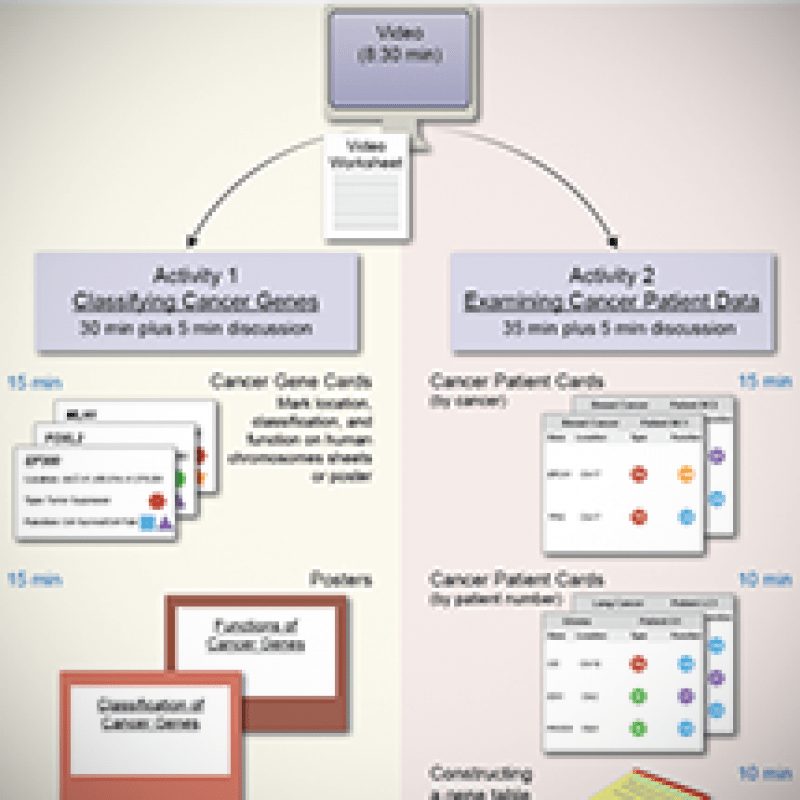The eukaryotic cell cycle and cancer biointeractive answer key provide a comprehensive understanding of the fundamental processes that govern cell division and its dysregulation in cancer. This in-depth resource delves into the intricate mechanisms underlying the cell cycle, highlighting key events, regulatory checkpoints, and the consequences of their disruption in cancer development.
Throughout this exploration, we will uncover the molecular underpinnings of cell cycle control, examining how dysregulation can lead to uncontrolled cell proliferation, a hallmark of cancer. Moreover, we will explore the strategies employed by cancer cells to evade cell cycle checkpoints and the therapeutic approaches that target these vulnerabilities.
The Eukaryotic Cell Cycle

The eukaryotic cell cycle is a series of events that a cell goes through as it grows and divides. The cell cycle is divided into four phases: G1, S, G2, and M. During the G1 phase, the cell grows and prepares for DNA replication.
During the S phase, the cell’s DNA is replicated. During the G2 phase, the cell checks for errors in DNA replication and prepares for mitosis. During the M phase, the cell divides into two new cells.
The cell cycle is regulated by a number of checkpoints. These checkpoints ensure that the cell cycle proceeds in an orderly manner and that the cell does not divide if there are any errors in DNA replication.
Cancer and the Cell Cycle, The eukaryotic cell cycle and cancer biointeractive answer key
Dysregulation of the cell cycle can lead to cancer. Cancer cells are cells that have lost the ability to control their cell cycle. This can be caused by mutations in genes that regulate the cell cycle, or by other factors that disrupt the cell cycle.
Cancer cells evade cell cycle checkpoints by a variety of mechanisms. These mechanisms include:
- Overexpression of cyclins, which are proteins that activate cyclin-dependent kinases (CDKs).
- Inactivation of CDK inhibitors, which are proteins that inhibit CDKs.
- Mutations in genes that encode checkpoint proteins.
There are a number of different types of cancer treatments that target the cell cycle. These treatments include:
- Chemotherapy, which uses drugs to kill cancer cells.
- Radiation therapy, which uses radiation to kill cancer cells.
- Targeted therapy, which uses drugs to block specific proteins that are involved in the cell cycle.
General Inquiries: The Eukaryotic Cell Cycle And Cancer Biointeractive Answer Key
What are the key phases of the eukaryotic cell cycle?
The eukaryotic cell cycle consists of four distinct phases: G1, S, G2, and M.
How does dysregulation of the cell cycle contribute to cancer?
Dysregulation of the cell cycle, particularly the loss of cell cycle checkpoints, allows cells to bypass normal growth control mechanisms, leading to uncontrolled cell proliferation and cancer development.
What are the different types of cancer treatments that target the cell cycle?
Cancer treatments that target the cell cycle include chemotherapy, radiation therapy, and targeted therapies that inhibit specific cell cycle proteins.